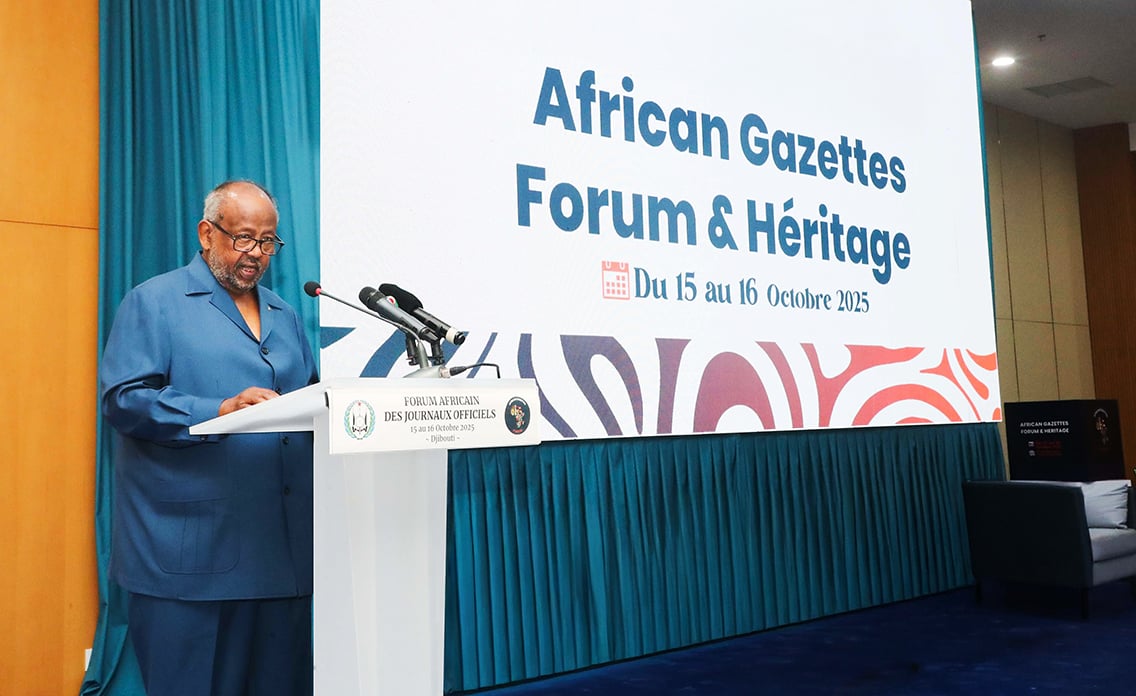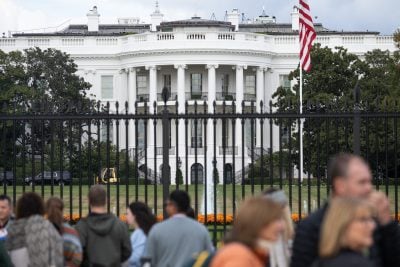This article was produced with the support of African Gazettes Forum
In February 2025, the Republic of Djibouti scored a major diplomatic coup – its Minister of Foreign Affairs, Mahmoud Ali Youssouf, was elected chairperson of the African Union Commission, giving the country unprecedented visibility on the continental stage. Eight months later, the momentum continues unabated. This ambitious country of one million inhabitants now intends to project its influence into quite another area: the law and data.
It was in this spirit that Djibouti hosted the first African Gazettes Forum on 15 and 16 October, dedicated to legal governance and digital sovereignty. This unprecedented event, at the crossroads of law and digital technology, brought together 18 African delegations to discuss legal governance, institutional transparency and control of public information.
A small state with big ambitions
Most of the delegates were discovering the Republic of Djibouti for the first time. This state in the Horn of Africa is often cited as an example of political and economic stability. Known for hosting several foreign military bases, boosted by its ports and with its currency pegged to the dollar, Djibouti has enjoyed steady growth for more than 20 years and, more recently, has asserted its influence on the regional and the continental stage.
By initiating and hosting the first ever African Gazettes Forum, Djibouti intends now to show that it is no longer limited to its role as a logistics hub – with 90% of Ethiopian imports transiting through its ports. It is seeking to diversify its influence, like the other major hubs in the Gulf, based on openness and quality of services, but this time also in the fields of law and digital technology.
To underscore the importance of the subject of the Forum, President Ismaïl Omar Guelleh himself inaugurated the event. The opening ceremony, held in the great hall of the National Library and Archives, highlighted the significance of the Forum and why it was taking place. “The Official Journal [a gazette recording laws passed] is an integral part of the history of each of our countries”, he said, addressing delegations from 18 African countries including Senegal, Morocco, Algeria, the Comoros and Somalia. He called for the “protection of this institutional memory” of the African continent.
The guardians of the temple of law
At first glance, the subject might seem austere. Who, apart from lawyers, is interested in the country gazettes? And yet, every state depends on this discreet pillar which makes laws public and gives them force. “It is the backbone of a state,” says Almis Mohamed Abdillahi, secretary general of the government and organiser of the forum. “Without a solid legal framework, a state cannot exist nor stand.”
For this first edition of the Forum, Djibouti brought together those it calls “the guardians of the temple” – ministers, vice-ministers, directors general of national printing offices, archivists, legal experts – the artisans of law who work invisibly behind the scenes to ensure the legal continuity of states.
For the continent at large, the archival reality remains mixed. Some states still publish their texts on paper, on an irregular basis, while others are moving towards digitisation but without a common framework or interoperability.
From its own experience, Djibouti felt the need to convene a forum of major players, the first in Africa, to give this vital issue a thorough and varied airing.
When he took over office four years ago, secretary general Almis Mohamed Abdillahi found the platform at a standstill and the archives under threat. There was also no real cooperation nor sharing of ideas at a continental level.
“I wanted to ask my neighbours for help, and that’s when I saw that there was a void,” he says. This situation gave rise to a two-fold project: to restore Djibouti’s “legislative memory” and to build an African space for cooperation on the subject.
Djibouti has now digitised 125 years of archives, from 1900 to the present day. The Official Journal is consulted by more than 2,000 people every day. For Almis Mohamed Abdillahi, the African Gazettes Forum is a natural extension of this work. “We wanted to share this experience and encourage other countries to do the same.”
Sharing experiences and African convergence
Over the course of two days delegates shared their experiences. Mohamed Abdillahi said: “This is the first time such a forum has been organised in Africa. Djibouti is leading the way, having digitised 125 years of official gazettes… There is still a long way to go,” he acknowledged, hailing “a unique space for dialogue between those who preserve the continent’s legal institutional memory”.
There was similar enthusiasm in Somalia, where civil wars have interrupted the publication of gazettes for more than two decades. “We are now republishing them online, in Somali and English. This African cooperation is essential to consolidate transparency,” says Ahmed Abdirahman Hassan, Somalia’s deputy minister of justice and constitutional affairs.
In Burkina Faso, which is in the midst of a digital modernisation project, the head of the Official Gazette department, Wiobepoui Ignace Bationo, insists on one point: making the Official Gazette known to as many people as possible. “Today, for many citizens, especially in our regions, if you say Journal Officiel, few people know what it is or what it is inside it,” he observes. “Let’s say that no one is supposed to be ignorant of the law, but what is being done to ensure that the law is not ignored but is known?”
The same view is shared in Tunisia, where Moncef Awadi, a civil servant in the prime minister’s office, points out that the Journal Officiel is only one link in the administrative chain. “Publishing is not enough; the law must be made understandable and accessible to all.”
Discussions also focused on the new challenges of digital technology; the use of artificial intelligence to index texts; data security and the sensitive issue of data hosting. “Who hosts our legal texts? Who controls the memory of our states?” asked one participant, summarising the fear of dependence on foreign-owned cloud services.
This was equally an opportunity for Djibouti to display its digital expertise: it is one of the most connected countries on the continent, with a dozen submarine cables crossing its territory. It now wants to transform this geostrategic position into a lever for sovereignty by developing its own data centres and a legal framework dedicated to digital governance.
A parallel exhibition
In parallel with the African Gazettes Forum, a heritage exhibition, mounted in the same building, traced the history of the country, from the first sultanates to independence, and showed how the digitisation of the archives is part of an historical continuum. “Tracing our history means understanding how the state was built in order to better advance it,” summarised Hibo Moumin Assoweh, minister of youth and culture.
As the forum drew to a close, Almis Mohamed Abdillahi emphasised the need to maintain the collective momentum. “The train has left the station,” he said, hailing “the beginnings of the birth of an African digital law community”.
The second edition of the Forum has already been announced for 2026 in Djibouti, probably a sign that the momentum is beginning. Understanding our past is critical to charting our future, a point President Ismaïl Omar Guelleh reiterated in his opening speech calling for even more work on this front: “We must now go back to the history of the sultanates to digitise our entire memory.”

 Sign in with Google
Sign in with Google 



